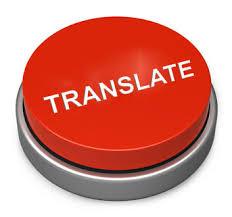How to translate verbose Arabic into English
One of the most challenging problems that Arabic English translators encounter today is having to translate a verbose Arabic text to English.
Verbosity or wordiness is a very common phenomenon in Arabic writings. It can particularly be seen in opinion articles, commentaries, news reports and several other types of text.
The direct challenge verbosity creates for any Arabic English translator is that it sometimes obscures the meaning of the original Arabic and makes it very hard to understand.
Without understanding what the text says and means in the source language (Arabic), it becomes impossible for any translator to convey or render the meaning in the target language (English).
The translator needs to fully understand the original text first. Period!
A key part of the verbosity problem in Arabic writings stems from what appears to be an attempt by the authors of such writings to show off what they believe is mastery and command of the Arabic language.
Instead of expressing an idea in a concise, simple and clear Arabic sentence, some writers decide to show off and go for a complicated structure and terminology unnecessarily, eventually causing the meaning itself to be lost in writing.
Other authors may drift into wordiness owing to the false assumption that the reader will not understand what they write without if it is expressed briefly and concisely.
Another group of Arabic writers would use more words than necessary because they believe this will make the sentence or phrase more interesting and attractive to the reader.
How to deal with a verbose text of Arabic as a translator?
Wordy structures in Arabic writings are a fact. But – as an Arabic English translator – how would you deal with it? How would you be able to translate such a text – both accurately and professionally? How would you ensure nothing is lost in the translation from Arabic to English?
First: Understanding the context
In Arabic, it is all about the context. The most complicated structures and expressions in Arabic can be gradually disentangled if you – as a translator – have a full picture of the context of the writing itself.
Forming a solid and comprehensive understanding of the context of the piece of Arabic writing you are translating is the first step towards being able to successfully translate it.
So aim to understand the context quite carefully.Second: Reading between the lines logically
Once you have established a good picture of the context, then you will need to carefully read such a long and verbose sentence or passage over and over again, with one goal in mind: getting to the bottom of what the writer is actually trying to say.
You should – logically – read between the lines.
Being aware of the context will aid you considerably in being able to figure out the intended meaning.
Third: Commenting
If you have developed a sufficient familiarity with the context of the Arabic-language text and made serious attempts at understanding its convoluted wording and meaning but without success, then simply comment.
One of the most common – and wrong – practices in Arabic English translation is doing guesswork. A competent and professional Arabic English translator would never get involved in guesswork when they are dealing with a complex text.
This is because in most cases it will lead to mistranslations which puts the translator's reputation on the line.
The best thing to do once you have exhausted all possible means explained above is to use the comment function in the document.
Simply write that the meaning is completely obscured owing to verbosity or convoluted structure in the source language (Arabic).
Ask for clarifications from the author. Ask what they meant in such a long and unclear sentence or passage. Asking for clarifications from the writer is far better and safer than doing guesswork and eventually making mistakes in the translation and tarnishing your reputation as an Arabic English translator.
Loghat Translation is a UK-based specialist provider of Arabic translation services.Need help with a translating a complex text from Arabic to English? Get in touch with us.
